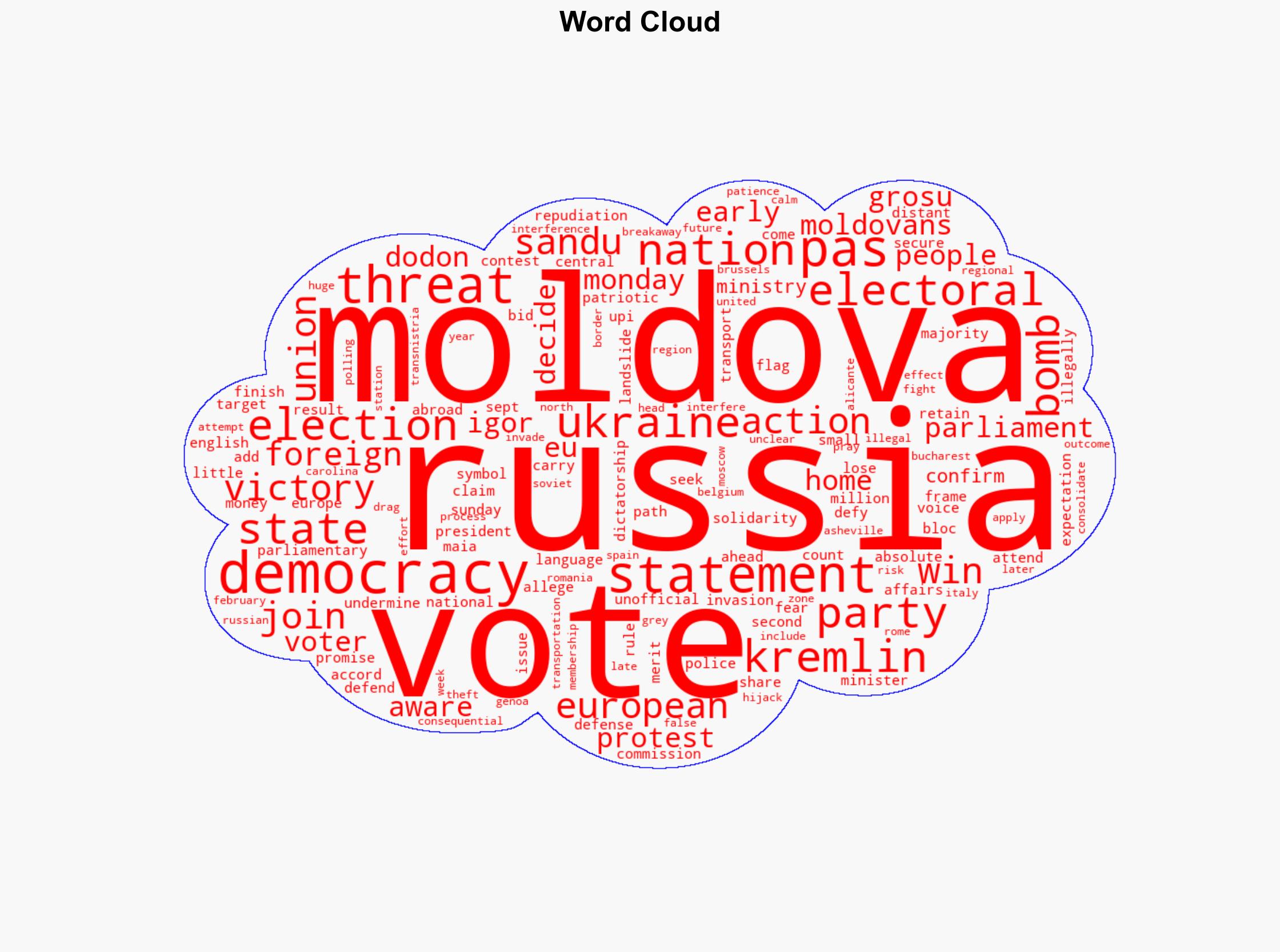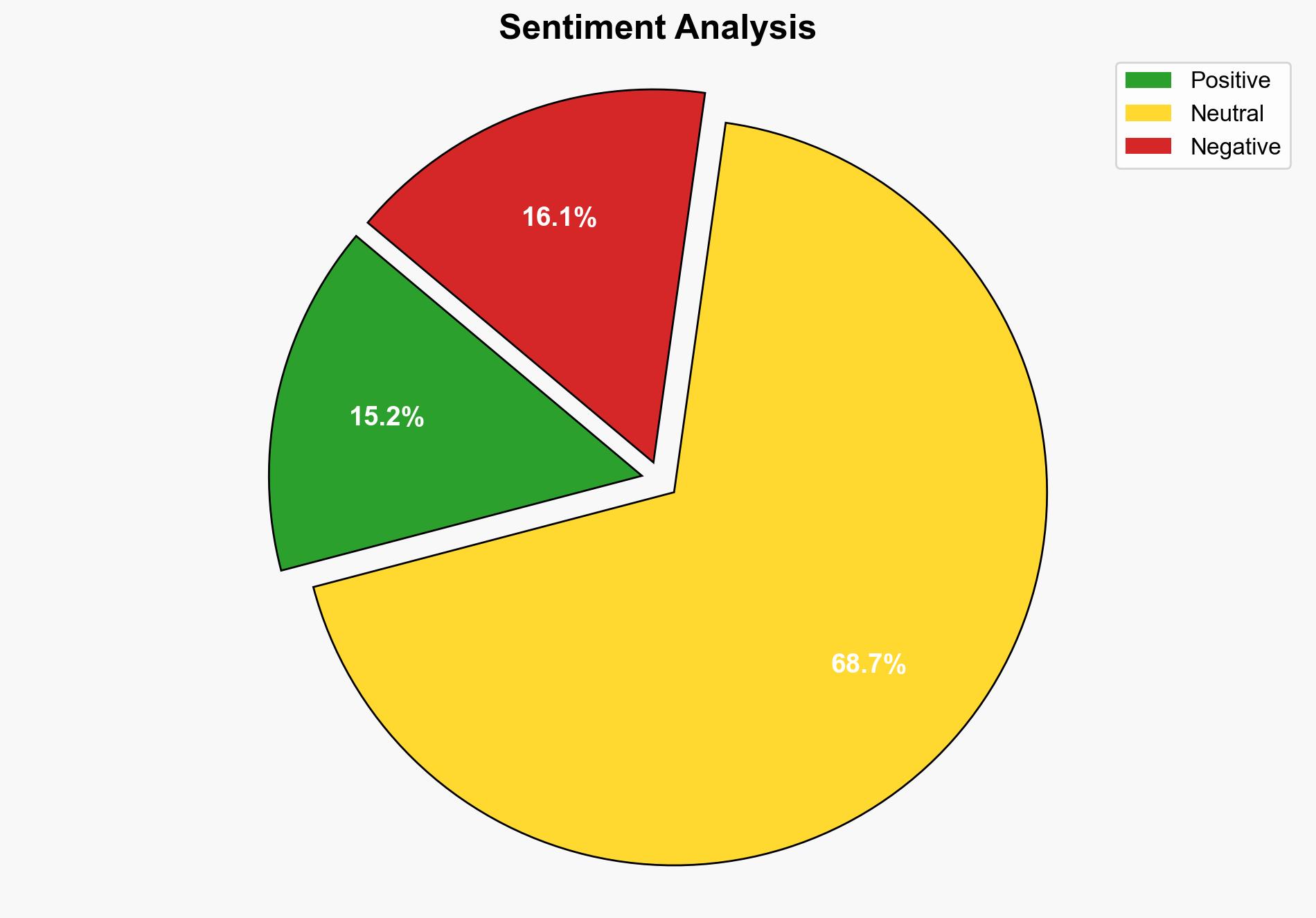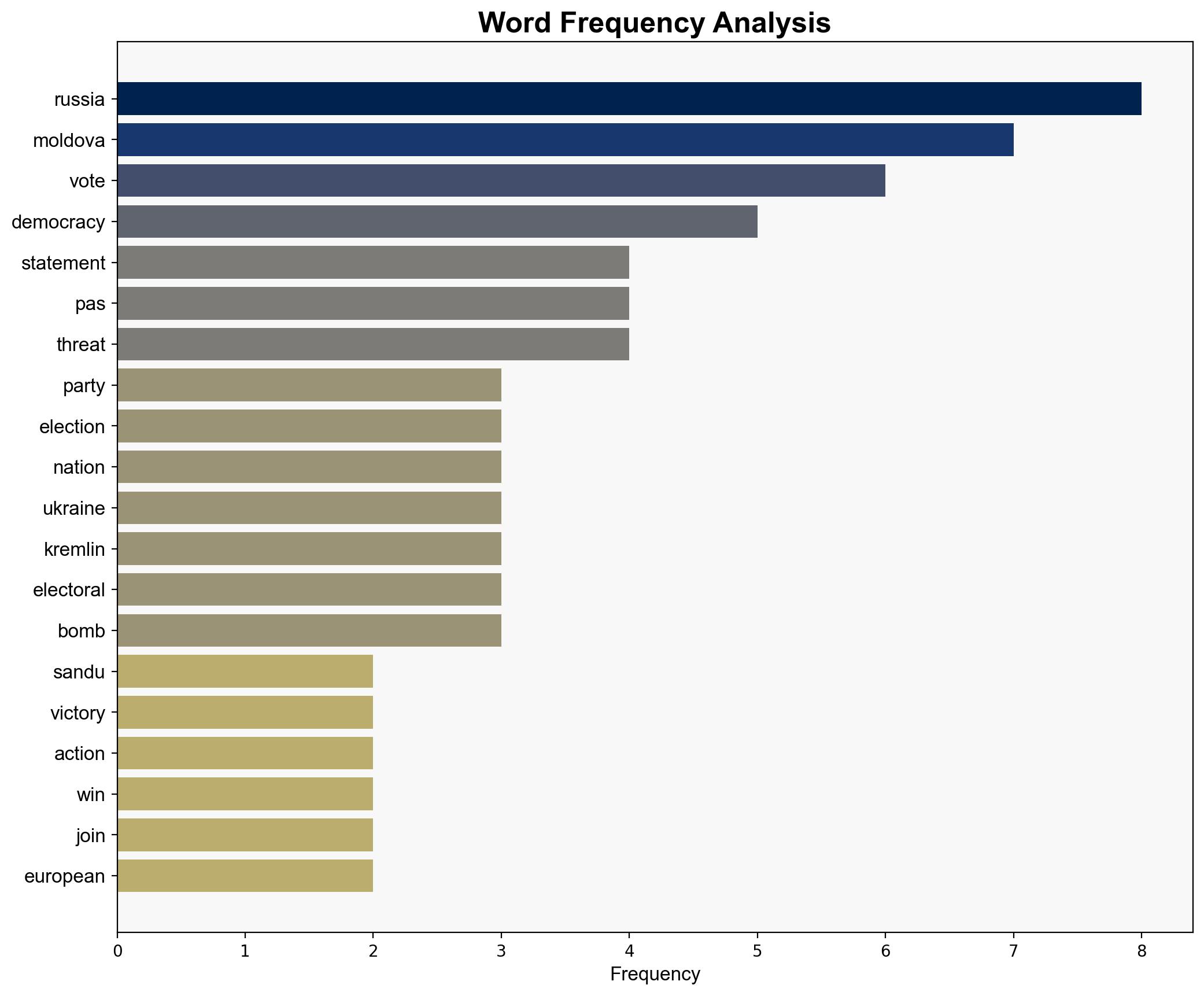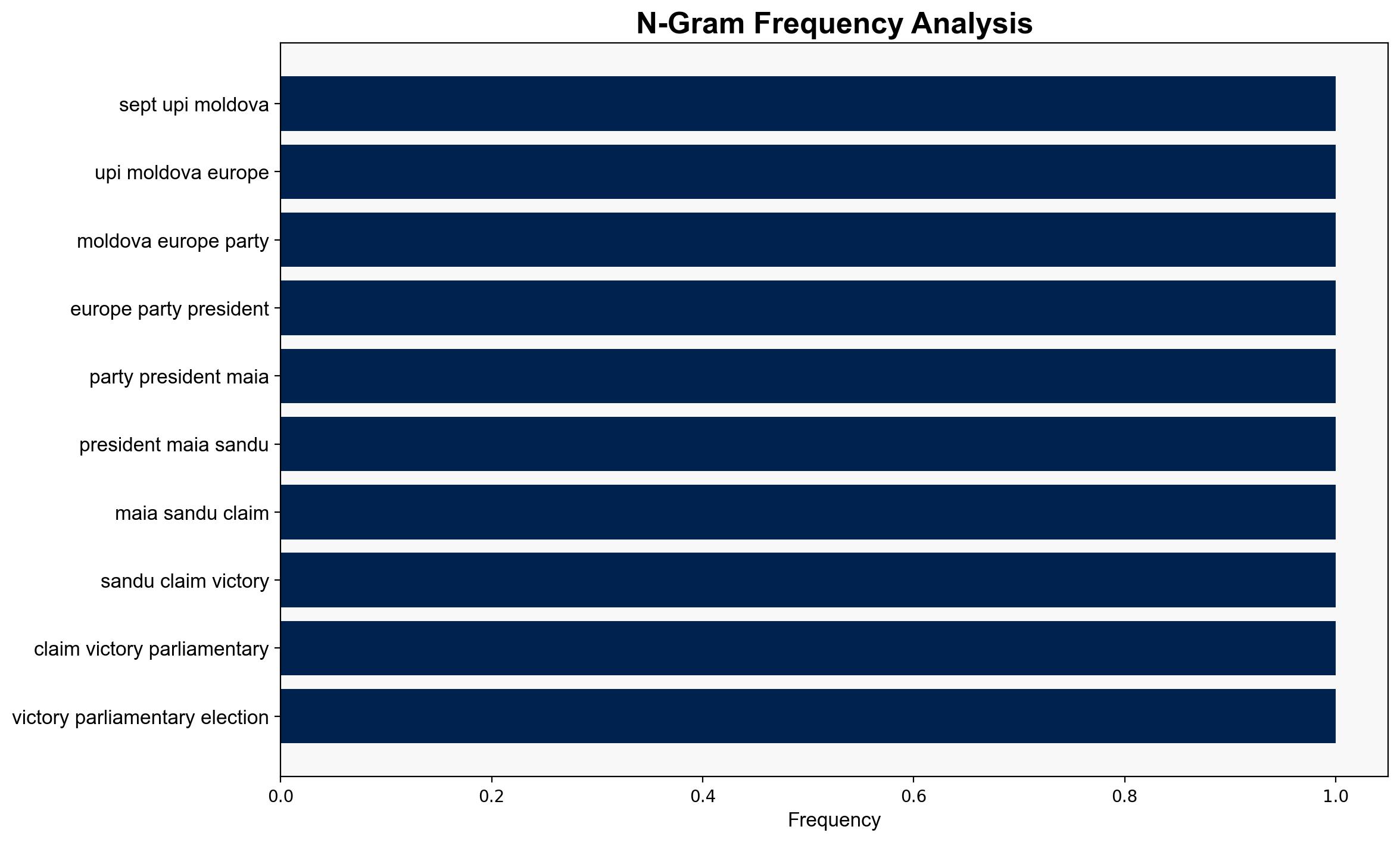Moldova backs EU in elections marred by Russian interference – UPI.com
Published on: 2025-09-29
Intelligence Report: Moldova backs EU in elections marred by Russian interference – UPI.com
1. BLUF (Bottom Line Up Front)
Moldova’s recent parliamentary elections, marked by allegations of Russian interference, resulted in a victory for the pro-European Union Party of Action and Solidarity (PAS). The most supported hypothesis is that Moldova’s electorate is decisively leaning towards EU integration despite Russian efforts to influence the outcome. Confidence level: Moderate. Recommended action: Strengthen Moldova’s democratic institutions and cybersecurity measures to safeguard against future interference.
2. Competing Hypotheses
1. **Hypothesis A**: The election results reflect a genuine pro-EU sentiment among Moldovan voters, with Russian interference attempts largely ineffective.
2. **Hypothesis B**: Russian interference significantly influenced the election, but the PAS victory was achieved despite these efforts due to strategic countermeasures and voter resilience.
Using ACH 2.0, Hypothesis A is better supported by the available evidence, including the clear victory margin and the reported ineffectiveness of Russian tactics such as bomb threats and illegal voter transportation.
3. Key Assumptions and Red Flags
– **Assumptions**: Hypothesis A assumes that Moldovan voters are well-informed and resilient against external influence. Hypothesis B assumes that Russian interference was extensive but ultimately ineffective.
– **Red Flags**: The lack of detailed evidence on the scale and impact of Russian interference raises questions about the true extent of their influence. Reports of voter transportation and bomb threats suggest potential gaps in election security.
4. Implications and Strategic Risks
The election outcome could lead to increased tensions between Moldova and Russia, potentially escalating into economic or cyber confrontations. Moldova’s pursuit of EU membership may provoke further Russian attempts to destabilize the region, particularly through the breakaway region of Transnistria.
5. Recommendations and Outlook
- Enhance Moldova’s cybersecurity infrastructure to prevent future election interference.
- Engage in diplomatic efforts with EU and NATO allies to support Moldova’s democratic processes.
- Scenario Projections:
- Best: Moldova successfully integrates into the EU, strengthening regional stability.
- Worst: Escalation of Russian interference leads to internal unrest and regional instability.
- Most Likely: Continued Russian attempts to influence Moldova, met with increasing resilience and international support.
6. Key Individuals and Entities
– Maia Sandu
– Igor Dodon
– Igor Grosu
– Party of Action and Solidarity (PAS)
– Moldova Central Electoral Commission
7. Thematic Tags
national security threats, cybersecurity, counter-terrorism, regional focus





